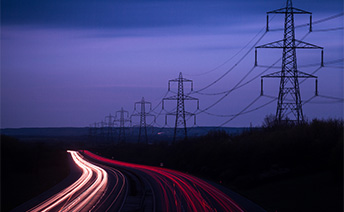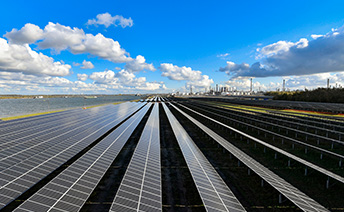International Association of Oil & Gas Producers (IOGP)
IOGP states that it is the voice of the global upstream energy industry, with members supplying over 40% of the world’s oil and gas demand.[1] IOGP Europe is the Brussels-based policy arm of IOGP and the centre of its advocacy activity.[2]
Membership of board/executive committee: Shell is a member of the Board of Directors, which is responsible for IOGP’s overall strategy and direction.[3]
- 2022 assessment outcome: Aligned
- 2021 assessment outcome: Aligned
Summary
Shell benefits from its membership of IOGP, in particular through the association’s engagement with regulators in many jurisdictions. We value the forum that IOGP presents to share knowledge and good practices with industry peers, and to achieve improvements in areas such as safety, the environment, security and social responsibility.
We welcome the establishment of IOGP’s Energy Transition Directorate in 2021, which has three committees: low carbon operating efficiency, carbon capture transportation and storage, and workforce energy.
We have found IOGP to be aligned with our climate and energy transition-related policy positions.
We will encourage IOGP to:
- Support ending routine flaring sooner than 2030. IOGP already supports ending routine flaring by 2030, but we encourage efforts to bring that date forward.
- Explicitly support policies to ensure that nature-based solutions complement and do not displace efforts to avoid and reduce greenhouse gas emissions.
We will remain a member of IOGP. We will continue to engage the association on climate and energy transition topics. We will continue to track alignment between IOGP’s climate and energy transition-related positions and our own.
Further information
Click on the sections below to read more.
Paris Agreement and net-zero emissions
- IOGP has stated it supports the goals of the Paris Agreement.[4]
- IOGP Europe has stated support for the EU’s target to achieve climate neutrality by 2050.[5] [6] [7] [8]
Carbon pricing
- IOGP has stated support for carbon pricing.[9] In its October 2021 response to the consultation on the EU Carbon Border Adjustment Mechanism, it stated “IOGP favours a globally consistent, meaningful carbon price. However, until consistency on a global carbon pricing can be achieved, IOGP believes it is essential to adopt effective EU measures that avoid carbon leakage.”[10]
Energy efficiency
- IOGP has established a Low Carbon Operational Efficiency Committee that focuses on decreasing CO2 emissions and methane intensity from upstream operations.[11] [12]
- In 2022, IOGP and IPIECA published an updated compendium of energy and greenhouse gas efficient technologies and practices.[13] [14]
- In its October 2021 response to the EU Energy Efficiency Directive (EED), IOGP stated that it supports the “energy efficiency first principle” and that it “recommends that all technologies which can contribute to meeting the EU’s energy efficiency objectives, including natural gas, are recognised in the final revised EED”.[15] It is noted this submission is mainly focused on IOGP’s position in support of retaining gas in the EED.
Decarbonised hydrogen
- IOGP Europe has set out hydrogen policy recommendations that include “a technology-neutral approach to scaling up hydrogen, ensuring all low-carbon technologies can fulfil their potential.”[16]
- In its 2022 response to the consultation on the EU’s Hydrogen and Decarbonised Gas Market package, IOGP stated that it welcomed the package as a “necessary framework to decarbonise the gas sector by accommodating renewable and low-carbon gases.”[17]
- IOGP is a partner of Hydrogen4EU, which is a cross-sectoral research project aimed at assessing the contribution of low-carbon and renewable hydrogen in the EU’s energy transition.[18] [19]
- IOGP is a founding member of Gas Naturally, which is calling for the EU to support the large-scale deployment of “clean hydrogen” using gas and carbon capture and storage.[20]
Natural ecosystems
- In its 2022 response to the consultation on the EU’s Certification of carbon removals, IOGP stated support for a range of “carbon farming solutions enhancing ecosystem removals” and the need for monitoring, reporting and verification.[21]
Carbon capture and storage
- IOGP has stated support for policy mechanisms to drive deployment of carbon capture and storage (CCS) at scale.[22] [23]
- IOGP has established a Carbon Capture, Transportation, and Storage Committee (CCTS) that focuses on “accelerating the standardization of CCS to improve its cost, scheduling, and safety, thus enabling widespread implementation of CCS”.[24]
- In 2022, IOGP called for a European ambition for CO2 storage capacity by 2050, and a European CCUS strategy to support such an ambition.[25]
- In its 2022 response to the consultation on the EU’s Certification of carbon removals, IOGP stated that it is “key to have a comprehensive framework for CCS development in the EU and to create MRV rules from non-fossil source to make the CO2 stored accountable, also including geological storage of fossil CO2”.[26]
Environmental, social and governance (ESG) standards and benchmarks, sustainable finance taxonomies
- IOGP supports “meaningful corporate reporting policies relating to the disclosure of non-financial information pertaining to sustainability issues” and aligned standards at European and international level.[27]
- IOGP, in collaboration with Ipieca and API, produced Sustainability reporting guidance for the oil and gas industry in 2020, which references other reporting frameworks including the Task Force on Climate-related Financial Disclosures (TCFD), the International Organization for Standardization (ISO), the Global Reporting Initiative (GRI), and CDP frameworks.[28]
- In its 2022 press release about the inclusion of gas in the Taxonomy Regulation, IOGP stated: “The European Commission should be commended for delivering a delegated act respecting the Taxonomy Regulation and provide for a transitionary and enabling role of natural gas related activities in the EU Taxonomy.” However it called for the technical criteria set for gas to be reviewed, stating that they were “extremely challenging given the current technological reality and risk including natural gas in name only.”[29]
Coal
- IOGP has stated that it “strongly advocates for switching from coal to natural gas which produces about half of the emissions produced by coal and is the ideal partner for renewable energy” and that “for many [EU] Member States, switching from coal to gas and renewables remains the most cost-effective and immediate option to reduce power generation emissions.”[30] [31]
Electrification with renewable or low-carbon power
- IOGP has established a Low Carbon Operational Efficiency Committee that aims to drive decarbonisation through electrification, flaring and methane reduction.[32] In 2022, the committee published a report on recommended practices for electrification of oil and gas facilities.[33]
Gases and methane
- IOGP has stated that natural gas “is the ideal partner for renewable energy”.[34]
- IOGP is a founding member of Gas Naturally, which advocates for the role of natural gas, renewable and low carbon gases in the energy transition.[35] [36]
- IOGP states that it “actively supports the enhancement of the industry’s performance on minimising methane emissions from upstream oil and gas production, including flaring and venting”.[37] IOGP has established a Low Carbon Operational Efficiency Committee that aims to decrease CO2 emissions and methane intensity from upstream operations.[38]
- IOGP is a supporting organisation of the Methane Guiding Principles (MGP) and “fully supports the OGMP 2.0 Reporting Framework”.[39] [40] IOGP supported all MGP policy recommendations for the EU published in 2021.[41]
- IOGP has stated support for the ending of routine flaring by 2030.[42] [43]
- IOGP, in conjunction with IPIECA and the Global Gas Flaring Reduction Partnership, published Flaring management guidance in February 2022.[44] The purpose of the guidance is to drive the adoption of flaring best practices, and identify effective regulatory frameworks that facilitate reduced flaring.[45]
Road transport: Passenger cars and vans
No position
Road transport: Heavy-duty vehicles
- IOGP is a founding member of Gas Naturally; in Gas Naturally’s policy statement on the proposal for a regulation on the deployment of alternative fuels infrastructure (AFIR), Gas Naturally stated: “The use of alternative and renewable gaseous fuels and the deployment of the gas road refuelling infrastructure supports the decarbonisation of the transport sector, as it enables the supply and wider deployment of renewable and low-carbon gaseous solutions including biomethane, e-methane, LPG, bioLPG, and rDME across the EU. All these technologies can play a critical role in decarbonising road transport and contributing to the EU’s climate objectives, provided that an enabling framework is put in place.”[46]
Heavy industry decarbonisation
- IOGP has stated support for heavy industry decarbonisation using hydrogen and CCS.[47] [48]
Aviation
No position
Shipping
No position
Return to list of associations[1] https://www.iogp.org/about-us/
[2] https://iogpeurope.org/about-iogp-europe/vision-mission/
[3] https://www.iogp.org/about-us/structure-and-governance/
[4] https://iogpeurope.org/wp-content/uploads/2022/01/CBAM-IOGP-response.pdf
[5] https://iogpeurope.org/wp-content/uploads/2022/01/CBAM-IOGP-response.pdf
[6] https://iogpeurope.org/wp-content/uploads/2021/10/ETD-IOGP-response.pdf
[7] https://iogpeurope.org/wp-content/uploads/2022/01/RED-IOGP-response.pdf
[8] https://iogpeurope.org/wp-content/uploads/2022/01/ETS-IOGP-response.pdf
[9] https://iogpeurope.org/wp-content/uploads/2022/01/CBAM-IOGP-response.pdf
[10] https://iogpeurope.org/wp-content/uploads/2022/01/CBAM-IOGP-response.pdf
[11] https://www.iogp.org/workstreams/energy-transition/
[12] https://iogpeurope.org/wp-content/uploads/2022/01/EED-IOGP-response.pdf
[13] https://www.ipieca.org/media/eec/Ipieca-IOGP-energy-efficiency-compendium-Energy-Efficient-Design.pdf
[14] https://www.linkedin.com/posts/ipieca_ipieca-iogp-alternative-thermodynamic-cycles-activity-7018890166140289024-6W8z
[15] https://iogpeurope.org/wp-content/uploads/2022/01/EED-IOGP-response.pdf
[16] https://iogpeurope.org/key-topics/hydrogen/
[17] https://iogpeurope.org/wp-content/uploads/2022/03/Hydrogen-and-Decarbonised-Gas-Market-package-paper.pdf
[18] https://www.iogp.org/blog/news/hydrogen-for-europe-study-launch/
[19] https://www.hydrogen4eu.com/_files/ugd/2c85cf_e934420068d44268aac2ef0d65a01a66.pdf
[20] https://www.gasnaturally.eu/about-gas/clean-hydrogen-and-ccs-for-europe/
[21] https://iogpeurope.org/wp-content/uploads/2022/05/Contribution88a9a46f-9d8c-4fd1-b461-3d58afac65d3.pdf
[22] https://www.iogp.org/blog/position-statements/climate-change-iogp-position-paper/
[23] https://www.iogp.org/workstreams/energy-transition/
[24] https://www.iogp.org/workstreams/energy-transition/
[25] https://iogpeurope.org/wp-content/uploads/2022/10/IOGP-Europe-Press-Release-CCUS-Storage-Ambition.pdf
[26] https://iogpeurope.org/wp-content/uploads/2022/05/Contribution88a9a46f-9d8c-4fd1-b461-3d58afac65d3.pdf
[27] https://iogpeurope.org/wp-content/uploads/2021/09/CSRD-response-paper.pdf
[28] https://www.ipieca.org/work/sustainability/performance-reporting/sustainability-reporting-guidance
[29] https://iogpeurope.org/wp-content/uploads/2022/02/PR-IOGP-Europe-CDA-Taxonomy-Final.pdf
[30] https://www.iogp.org/blog/position-statements/climate-change-iogp-position-paper/
[31] https://iogpeurope.org/wp-content/uploads/2021/09/Moving-Together-Into-Tomorrow.pdf
[32] https://www.iogp.org/workstreams/energy-transition/
[33] https://www.iogp.org/bookstore/product/recommended-practices-for-electrification-of-oil-and-gas-facilities/
[34] https://www.iogp.org/blog/position-statements/climate-change-iogp-position-paper/
[35] https://www.gasnaturally.eu/about-gasnaturally/our-vision/
[36] https://gasnaturally.eu/wp-content/uploads/2022/09/GasNaturally-Factsheet-on-Renewable-Gases-September-2022.pdf
[37] https://www.iogp.org/blog/position-statements/climate-change-iogp-position-paper/
[38] https://www.iogp.org/workstreams/energy-transition/
[39] https://methaneguidingprinciples.org/signatories-and-supporting-organisations/#organisations
[40] https://www.iogp.org/blog/news/iogp-response-to-iea-global-methane-tracker-report/
[41] https://methaneguidingprinciples.org/library/topic-policy-and-regulation/content_type-mgp-materials/
[42] https://www.ipieca.org/work/climate/emissions-management/flaring-management-guidance
[43] https://www.iogp.org/blog/news/iogp-ipieca-and-the-world-bank-global-gas-flaring-reduction-partnership-ggfr-to-launch-flaring-management-guidance-for-the-oil-and-gas-industry/
[44] https://www.ipieca.org/work/climate/emissions-management/flaring-management-guidance
[45] https://www.ipieca.org/work/climate/emissions-management/flaring-management-guidance
[46] https://gasnaturally.eu/wp-content/uploads/2022/03/GasNaturally-Position-Paper-on-AFIR-16-March-2022.pdf
[47] https://iogpeurope.org/news/towards-greater-hydrogen-production-capacity-in-europe/
[48] http://www.europeanfiles.eu/climate/large-scale-decarbonisation-solutions-for-a-climate-neutral-industry-and-jobs-in-europe










